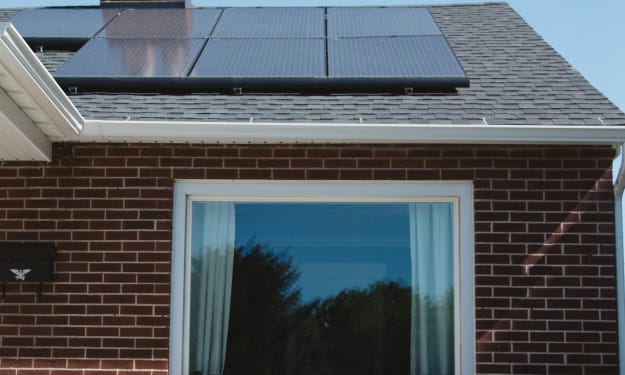Reducing Plastic Waste
A Sustainable Solution to Climate Change

Reducing Plastic Waste: A Sustainable Solution to Climate Change
Climate change is one of the most significant challenges of our time, and reducing plastic waste can be a sustainable solution to this global issue. Plastic waste is a significant contributor to greenhouse gas emissions, which are one of the primary causes of climate change. Reducing plastic waste not only helps reduce greenhouse gas emissions but also helps to protect the environment and preserve natural resources.
The impact of plastic waste on the environment
Plastic waste is one of the most significant sources of pollution in the world. Plastic products are often designed for single-use, such as plastic bags, water bottles, and packaging. These products are discarded after use and end up in landfills or the natural environment. Plastic waste takes hundreds of years to decompose and can cause significant damage to the environment.
Plastic waste not only pollutes the environment but also harms wildlife. Marine life, in particular, is vulnerable to plastic waste. Plastic waste in oceans and other bodies of water can be mistaken for food by marine life, leading to ingestion and entanglement. The accumulation of plastic waste in the ocean also disrupts the ecosystem, causing imbalances in the food chain and damaging habitats.
Plastic waste and greenhouse gas emissions
Plastic waste contributes significantly to greenhouse gas emissions, which are the primary cause of climate change. The production of plastic products requires a significant amount of energy, which is generated from fossil fuels. Fossil fuels, such as coal, oil, and gas, release greenhouse gases when burned. Greenhouse gases, such as carbon dioxide and methane, trap heat in the earth's atmosphere, leading to global warming.
In addition to the energy required to produce plastic products, the disposal of plastic waste also contributes to greenhouse gas emissions. When plastic waste decomposes, it releases methane, a potent greenhouse gas. Methane has a warming potential that is more than 20 times greater than carbon dioxide.
Reducing plastic waste: A sustainable solution to climate change
Reducing plastic waste can be a sustainable solution to climate change. Here are some ways to reduce plastic waste:
Reduce single-use plastic products: Single-use plastic products are a significant contributor to plastic waste. Switching to reusable products, such as cloth bags, water bottles, and food containers, can significantly reduce plastic waste.
Recycling: Recycling plastic products can significantly reduce the amount of plastic waste that ends up in landfills or the natural environment. Recycling also reduces the amount of energy required to produce new plastic products.
Composting: Composting is another way to reduce plastic waste. Organic waste, such as food scraps and yard waste, can be composted and used as a natural fertilizer. Composting reduces the amount of organic waste that ends up in landfills, where it decomposes and releases methane.
Support plastic alternatives: Many plastic alternatives, such as paper and biodegradable plastics, are available. Supporting these alternatives can help reduce plastic waste.
Education and awareness: Education and awareness are essential for reducing plastic waste. Educating people about the impact of plastic waste on the environment and providing them with the tools and resources to reduce plastic waste can help create a sustainable future.
The benefits of reducing plastic waste
Reducing plastic waste has many benefits, including:
Reducing greenhouse gas emissions: Reducing plastic waste can significantly reduce greenhouse gas emissions, which are the primary cause of climate change.
Protecting the environment: Reducing plastic waste helps protect the environment and preserve natural resources.
Improving public health: Plastic waste in landfills and the natural environment can release toxic chemicals, which can harm public health. Reducing plastic waste can improve public health by reducing exposure to these toxins.
Saving energy: Producing plastic products requires a significant amount of energy, which is generated from fossil fuels. By reducing plastic waste, we can save energy and reduce our dependence on fossil fuels.
Creating a sustainable future: Reducing plastic waste is an important step towards creating a sustainable future. By reducing plastic waste, we can help create a world where resources are used efficiently and responsibly.
Conclusion
Reducing plastic waste is a sustainable solution to climate change. Plastic waste is a significant contributor to greenhouse gas emissions, which are the primary cause of climate change. Reducing plastic waste not only helps reduce greenhouse gas emissions but also helps protect the environment, preserve natural resources, improve public health, save energy, and create a sustainable future. By taking simple steps, such as reducing single-use plastic products, recycling, composting, supporting plastic alternatives, and education and awareness, we can all make a difference and create a more sustainable world. Let's work together to reduce plastic waste and create a better future for ourselves and future generations.
"Disclosure: Some of the links in this article may contain affiliate links, which means that if you click on one of the links, I may receive a small commission. This is at no extra cost to you and helps to support us"
About the Creator
HSE Insider
Join the HSE community and take your safety knowledge to the next level with “HSE Insider”
Follow us on social media and be sure to share with your network. Together, we can make the world a safer place.
Support HSE Insider today!






Comments
There are no comments for this story
Be the first to respond and start the conversation.